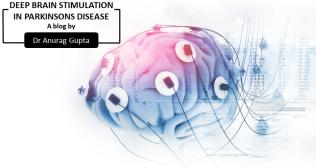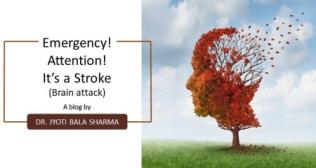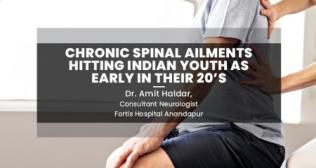
7 Worst Foods That Harm Your Brain Health – Avoid These Daily Habits!
Your brain is the control center of your entire body — every thought, memory, emotion, and decision starts here. But did you know that what you eat directly impacts how well your brain works? In today’s fast-paced lifestyle, we unknowingly consume foods that may be silently damaging our brain health. Whether it's memory loss, lack of focus, anxiety, or even early signs of dementia — the root cause could lie on your plate.
Let’s dive into the 7 worst foods for your brain that you should cut down immediately, and discover healthier alternatives to protect your mental clarity and emotional well-being.
Top 7 Worst Foods for Your Brain
1. Sugary Beverages (Sodas, Energy Drinks)
Why It’s Bad: These drinks spike your blood sugar, leading to inflammation in the brain and increasing the risk of Alzheimer’s disease.
Emotional Impact: You feel temporarily energized but crash quickly — emotionally and physically.
Try This Instead: Infused water with lemon, cucumber, or berries.
2. Trans Fats (Packaged Snacks, Margarine)
Why It’s Bad: Artificial trans fats restrict blood flow to the brain and reduce cognitive performance.
Emotional Impact: Regular consumption may lead to poor memory and mood swings.
Try This Instead: Choose healthy fats like avocados, nuts, and olive oil.
Related Blog: 10 Harmful Effects of Junk Food
3. Refined Carbs (White Bread, Pastries)
Why It’s Bad: These have a high glycemic index that causes brain fog and energy crashes.
Emotional Impact: You feel full briefly, but concentration and alertness suffer.
Try This Instead: Whole grains like quinoa, oats, and brown rice.
4. Highly Processed Foods (Frozen Meals, Instant Noodles)
Why It’s Bad: Loaded with additives, preservatives, and salt that damage brain cells over time.
Emotional Impact: Processed foods are linked with anxiety and depression.
Try This Instead: Freshly cooked meals using simple ingredients.
5. Aspartame and Artificial Sweeteners
Why It’s Bad: Aspartame may interfere with neurotransmitters, leading to headaches, anxiety, and sleep disorders.
Emotional Impact: Long-term use can disrupt your emotional stability and cognitive response.
Try This Instead: Use natural sweeteners like stevia or raw honey in moderation.
6. Alcohol
Why It’s Bad: Excessive alcohol consumption reduces brain volume and can lead to long-term memory issues.
Emotional Impact: Even moderate drinking can lead to anxiety, depression, and reduced decision-making ability.
Try This Instead: Limit intake to social occasions or opt for mocktails and herbal teas.
7. Fried Foods
Why It’s Bad: Deep-fried snacks are high in unhealthy fats that impair brain function and lead to inflammation.
Emotional Impact: Can cause sluggishness and reduced productivity.
Try This Instead: Bake or air-fry your meals using healthy oils.
Long-Term Effects of Brain-Damaging Foods
- Memory loss and difficulty concentrating
- Increased risk of dementia and Alzheimer’s
- Mood disorders like anxiety and depression
- Reduced productivity and motivation
- Slower learning and impaired decision-making
Lifestyle Tips to Boost Brain Health
- Follow the MIND Diet – A brain-healthy diet combining the Mediterranean and DASH diets.
- Hydrate Frequently – Even mild dehydration can affect memory and focus.
- Exercise Regularly – Physical activity boosts blood flow to the brain.
- Sleep 7-8 Hours Daily – Your brain cleans itself while you sleep.
- Practice Mindfulness – Meditation and breathing exercises reduce stress on the brain.
- Limit Screen Time – Digital overload strains mental health.
- Read and Learn Something New – Keep your brain active and engaged.
Medical Support & When to Seek Help
If you experience:
- Frequent forgetfulness
- Constant brain fog
- Mood changes or emotional instability
- Sudden changes in sleep or eating patterns
Consult a neurologist or a brain health specialist. You may also benefit from nutritional counseling or psychological therapy based on your symptoms.
Fortis Healthcare offers a range of brain health programs, neurological assessments, and cognitive therapy sessions tailored to your needs. Book an expert consultation today and take your first step towards better mental clarity.
Conclusion:
Your brain is your most valuable asset — what you feed it matters. Eliminating brain-harming foods isn’t just about staying sharp, it’s about living a fuller, happier, and more emotionally stable life. Every meal is a choice — make it count.
Ready to take control of your brain health?
Start with small changes in your diet today, or consult a nutritionist at Fortis Healthcare for a personalized brain-boosting diet plan.
FAQs:
Q1. Can I reverse brain damage caused by poor diet?
A: In many cases, brain function can be improved with a healthy lifestyle, proper nutrition, and early medical intervention.
Q2. Are all processed foods bad for the brain?
A: Not all, but heavily processed foods high in sodium, preservatives, and artificial flavors should be minimized.
Q3. How fast does food impact brain function?
A: Some foods like sugar can have an immediate effect (like a sugar rush), while others impact brain health over months or years.
Q4. Is caffeine bad for the brain?
A: In moderation, caffeine can improve alertness, but excessive use may lead to anxiety and poor sleep.



















